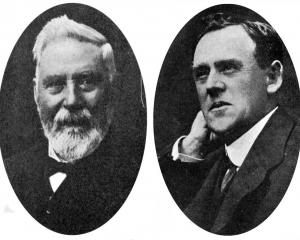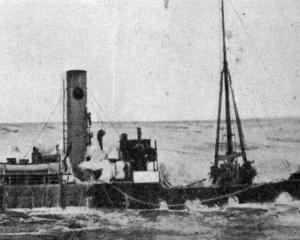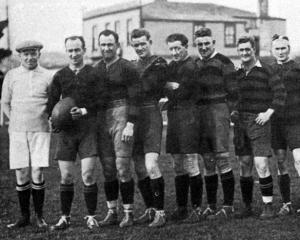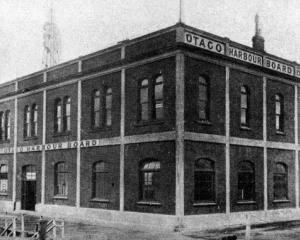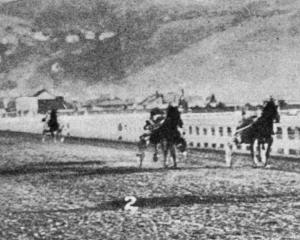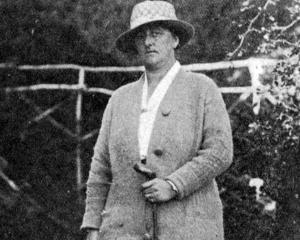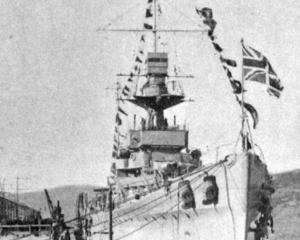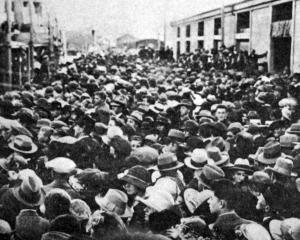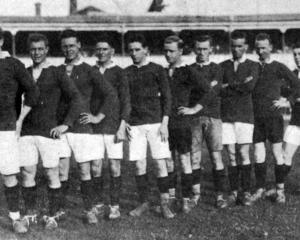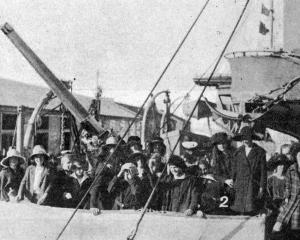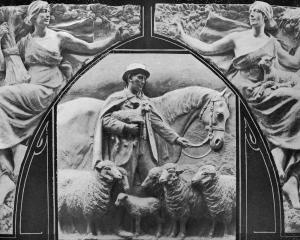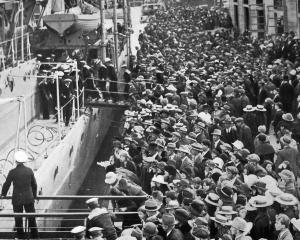It had been widely assumed that the strangle hold which the British Navy has upon the foreign trade of Germany practically precluded the possibility of the raw material for war munitions reaching her manufactories in that country.
It has become necessary to modify that view. Mighty as the British Navy has proved itself to be, it is an absolute impossibility for it to close every port on the Continent of Europe, while consideration must also be given by any self respecting nation to the rights of neutrals.
Friendly as Italy has all along been towards the Allies, it is practically certain that until she openly entered the conflict large quantities of contraband were consigned to Germany and Austria through her ports.
The position of Scandinavia and Holland is peculiarly favourable to the prosecution of illicit trade with Germany; and there can be no doubt that great quantities of merchandise have reached German ports by way of those countries.
It is probable, therefore, that, despite the utmost vigilance of an ever watchful fleet ... a great deal of material capable of being used in the manufacture of munitions of war has been finding its way into Germany and Austria.
• An interesting reference to the quinnat salmon was made by Mr L.F. Ayson, Government inspector of fisheries, who is on a visit to Auckland.
He has recently returned from the South Island, where he has been assisting in the netting and collection of quinnat salmon eggs.
These fish, he said, were now established in the Waitaki River. They come in from about the end of March, or the beginning of April, until the end of May, and as many eggs as possible are collected. The fish came in this year in much larger numbers than in any previous season.
They first commenced to return from the sea in 1907. The object in collecting eggs is to stock other rivers, and the Government officers are now stocking one of the large rivers on the west coast of the South Island.
It is expected that the salmon will spread into other suitable rivers.
• Mr Wilson, a member of the Dunedin Town planning Committee, who recently returned from a visit to Christchurch, informed a representative of this journal that he had been impressed with the improvements which had been effected in the northern city by the City Council having the fences which for some time encircled their reserves removed.
He considers that something like this should be done in Dunedin, and that a start should be made on the fence surrounding the gardens in the Octagon. In Mr Wilson's opinion this fence is mostly unsightly.
• There is at present in the city a married woman, 35 years of age, with a family of four children, of whom the eldest is 14 years, who had never seen a train nor this city before. She hails from the Wanaka district.
When spoken to as to her impressions of man's artificial efforts, she said she expected the trains to whirl along at a much greater pace than what she had found. She added that her greatest fear was that she would lose herself in town, where she has resided for a fortnight.
Even when quite close to any locality with which most people would have become familiar within a day or two, she is hopelessly lost as to her whereabouts.
- ODT, 22.6.1915.

